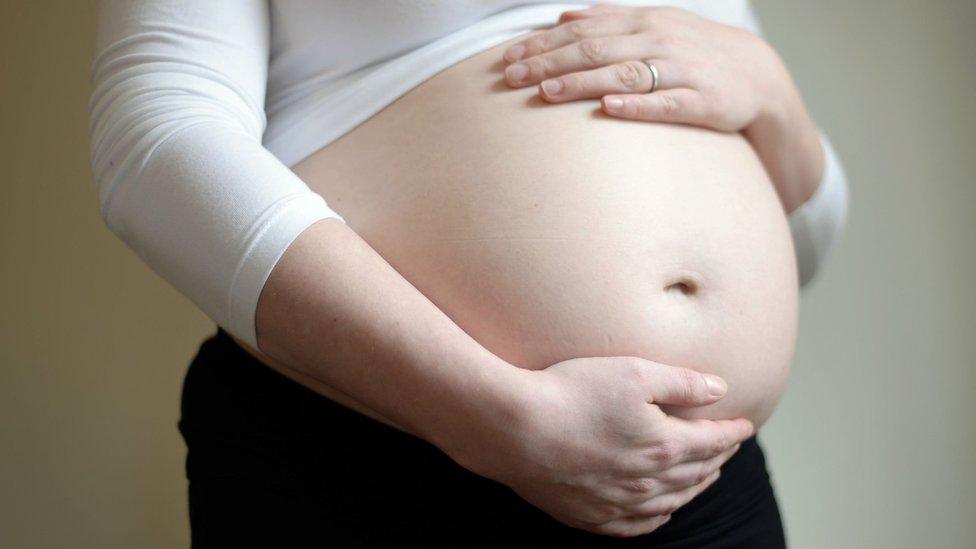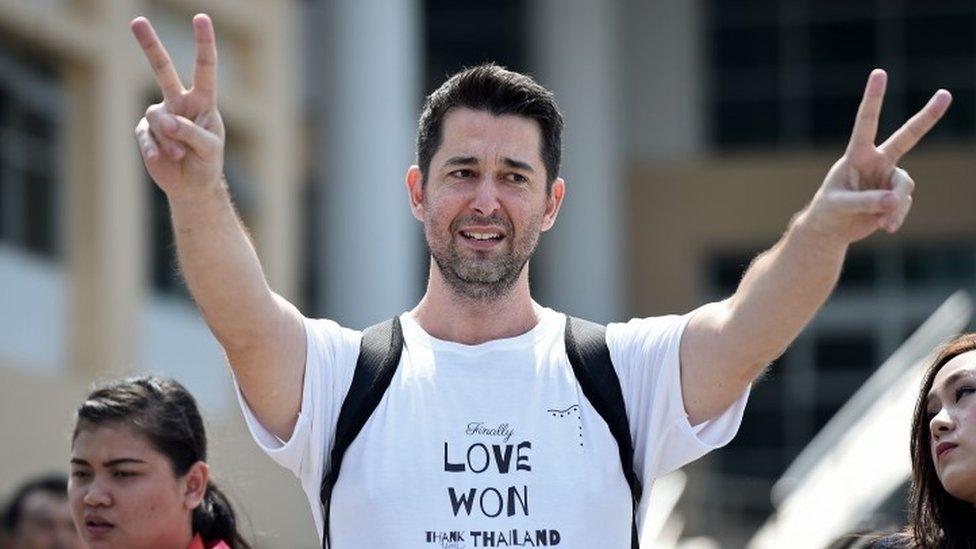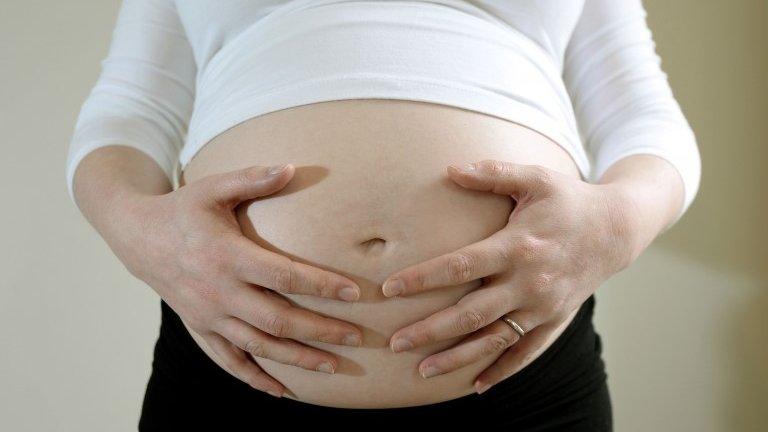Surrogacy laws for single parents to change after court ruling
- Published

Surrogacy laws which prevent single people from claiming parental rights are set to change following a ruling by the Family Division of the High Court.
The court ruled earlier this month, external that a single man who fathered a child via a surrogate mother had his right to raise the child discriminated against.
The man claimed the current law meant an application for a "parental order" could only be made by two people.
The government said it was now considering updating the legislation.
American mother
The child was born in August 2014 in Minnesota in the US, to an American surrogate mother using the father's sperm and a third party donor's egg.
The father then returned to the UK, bringing the child - ,known in court as Z - with him. But legally he did not have parental responsibility for the child - as under British law the surrogate mother is regarded as his mother, whatever the wishes of either party.
The current laws - the Human Fertilisation and Embryology Act 2008 - allow married couples, civil partners and couples in an "enduring family relationship" to apply for parental orders after a surrogacy arrangement.
This transfers legal parenthood from the surrogate mother to the commissioning parents. But the legislation does not currently allow parental orders to be awarded to single people.
In this case, the only option available to the would-be father was to apply to adopt the child.
Sir James Munby, the most senior family court judge in England and Wales, has agreed with the father, who said the legislation was incompatible with human rights laws.
The president of the Family Division of the High Court made a "declaration of incompatibility" in a ruling, after considering the case at a hearing in London.
He also said the child had been made a ward of court at an earlier stage of litigation and been placed in his father's care.
Adoption 'solution'
Health Secretary Jeremy Hunt's legal team had accepted that provisions of the Act were incompatible with human rights covering respect for family life and discrimination.
Barrister Samantha Broadfoot, representing Mr Hunt, told the judge: "It is accepted that there is a difference in treatment between a single person entering into a lawful surrogacy arrangement and a couple entering the same arrangement."
She did add that adoption was an "available solution".
Sir James gave the man permission to make further applications relating to parental status.
A Department of Health spokeswoman said: "We accept this judgment from the High Court. We will be looking to update the legislation on parental orders, and are considering how best to do this."
- Published26 April 2016

- Published6 August 2014
